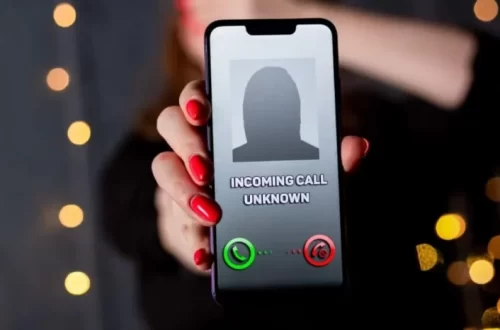Warning: 1909, 911955, 9876543210, 68886 sms, 9999999999 and 8888888888
In a world driven by technology and constant communication, receiving calls from unknown numbers has become a common occurrence. But what happens when those calls turn out to be spam? In this article, we’ll delve into the topic of spam call alerts in India, focusing on specific numbers like 1909, 911955, 9876543210, 68886, 9999999999, and 8888888888 that have been reported as sources of spam calls. We’ll explore the nature of these calls, the reasons behind their proliferation, and most importantly, how you can protect yourself from falling victim to them.
Introduction: The Growing Nuisance of Spam Calls
With the rapid digitization of India, the convenience of mobile communication has brought along an unwelcome guest: spam calls. These unsolicited and often fraudulent calls not only disrupt our daily lives but can also lead to serious financial and personal security concerns.
Understanding the Menace: What Are Spam Calls?
Spam calls are unauthorized, unwanted, and frequently deceptive calls that aim to extract sensitive information, money, or simply disturb recipients. They often come from numbers that appear legitimate at first glance but are carefully designed to deceive.
The Culprits Behind the Numbers
1909: The DND Deactivation Scam
One of the most notorious scams, this number often poses as a service to deactivate the National Do Not Call (DND) registry. Callers trick victims into sharing personal details under the guise of updating their preferences.
911955: The Bank Fraud Alert Hoax
This number preys on individuals by claiming to represent banks and warning of unauthorized transactions. Callers then coax recipients into sharing sensitive bank details, leading to fraudulent activities.
9876543210: The Identity Theft Trick
Callers from this number employ a tactic known as social engineering. Posing as government officials, they manipulate victims into revealing crucial identity information, which is later used for nefarious purposes.
68886: Subscription Traps Unveiled
Used for fake subscription offers, this number lures victims with promises of prizes or services. However, by pressing certain keys, unwitting users end up subscribing to premium services that incur hefty charges.
9999999999 and 8888888888: The Infamous Wangiri Calls
The term “Wangiri” means “one ring and cut” in Japanese. Callers from these numbers often disconnect after one ring, hoping curious recipients will call back, resulting in exorbitant charges or scams.
Why India? Unpacking the Factors
Several factors contribute to the prevalence of spam calls in India, including the vast population, rapid mobile phone adoption, and gaps in regulatory measures.
Protecting Yourself: Tips to Ward Off Spam Calls
Shielding yourself from spam calls requires diligence and awareness. Here are some practical steps to consider:
- Activate DND: Register for the National Do Not Call registry to minimize unsolicited calls.
- Verify Caller Identity: If you receive suspicious calls, don’t share personal information. Instead, call the official customer care number of the organization to confirm.
- Avoid Immediate Action: In cases of urgency, verify the call’s authenticity before taking any action.
- Use Call Blockers: Utilize apps that identify and block spam calls based on a database of reported numbers.
- Be Cautious with Personal Information: Be wary of sharing sensitive information over the phone, especially if the caller is unfamiliar.
The Role of Regulators: TRAI’s Efforts
The Telecom Regulatory Authority of India (TRAI) has taken significant steps to address the issue of spam calls. Initiatives like the “Do Not Disturb” app and stringent regulations for telemarketers have been introduced to curb the problem.
Staying Ahead: Technologies to Combat Spam
Technological advancements have led to the development of AI-driven solutions that can identify and filter out spam calls. These tools analyze call patterns and behaviors to distinguish between genuine and fraudulent calls.
Reporting and Taking Action
In the fight against spam calls, reporting incidents to authorities is crucial. Both TRAI and your service provider should be informed about suspicious numbers and activities.
The Legal Aspect: Can You Sue?
In certain cases, you may have legal recourse against persistent spam callers. Understanding your rights and consulting legal experts can help you explore legal actions.
Conclusion: Safeguard Your Communication
As spam calls continue to evolve and target unsuspecting individuals, it’s imperative to stay informed and vigilant. By following the recommended precautions and leveraging available technologies, you can protect yourself from falling victim to these fraudulent schemes.
FAQs
Q 1: Can I block these numbers manually?
A: Yes, most smartphones allow you to block specific numbers manually.
Q 2: What should I do if I’ve already shared information with a spam caller?
A: Contact your bank or relevant authorities immediately to secure your accounts.
Q 3: Are there any penalties for telemarketers making spam calls?
A: Yes, TRAI imposes penalties on registered telemarketers found violating regulations.
Q 4: How can I identify if a call is from a spam number?
A: Look out for unusual requests for personal or financial information and be cautious if the caller tries to rush you.
Q 5: What’s the difference between spam calls and phishing?
A: Spam calls are unsolicited calls with malicious intent, while phishing refers to attempts to deceive individuals into revealing sensitive information.





Average Rating